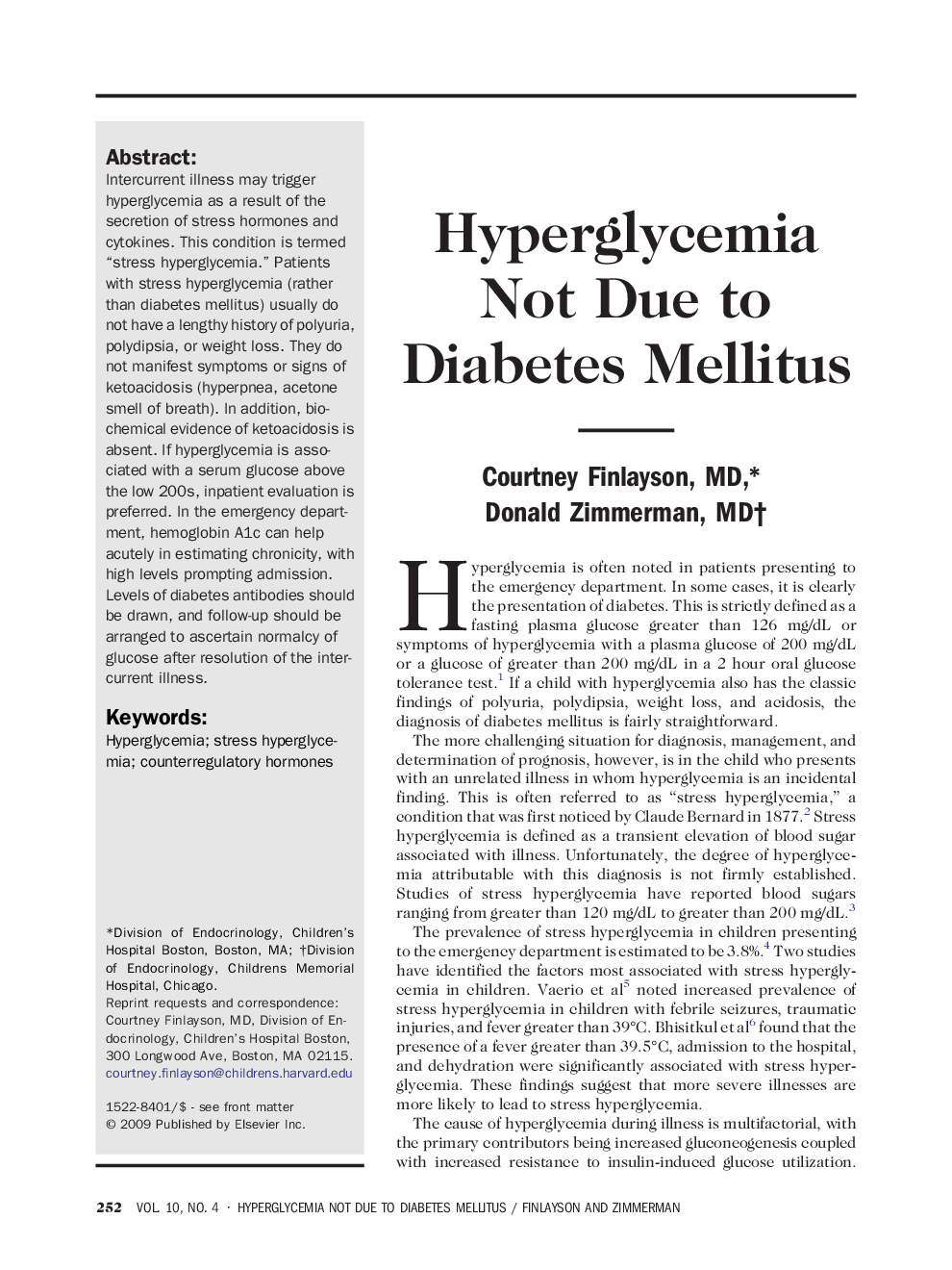| Article ID | Journal | Published Year | Pages | File Type |
|---|---|---|---|---|
| 3236259 | Clinical Pediatric Emergency Medicine | 2009 | 4 Pages |
Intercurrent illness may trigger hyperglycemia as a result of the secretion of stress hormones and cytokines. This condition is termed “stress hyperglycemia.” Patients with stress hyperglycemia (rather than diabetes mellitus) usually do not have a lengthy history of polyuria, polydipsia, or weight loss. They do not manifest symptoms or signs of ketoacidosis (hyperpnea, acetone smell of breath). In addition, biochemical evidence of ketoacidosis is absent. If hyperglycemia is associated with a serum glucose above the low 200s, inpatient evaluation is preferred. In the emergency department, hemoglobin A1c can help acutely in estimating chronicity, with high levels prompting admission. Levels of diabetes antibodies should be drawn, and follow-up should be arranged to ascertain normalcy of glucose after resolution of the intercurrent illness.
